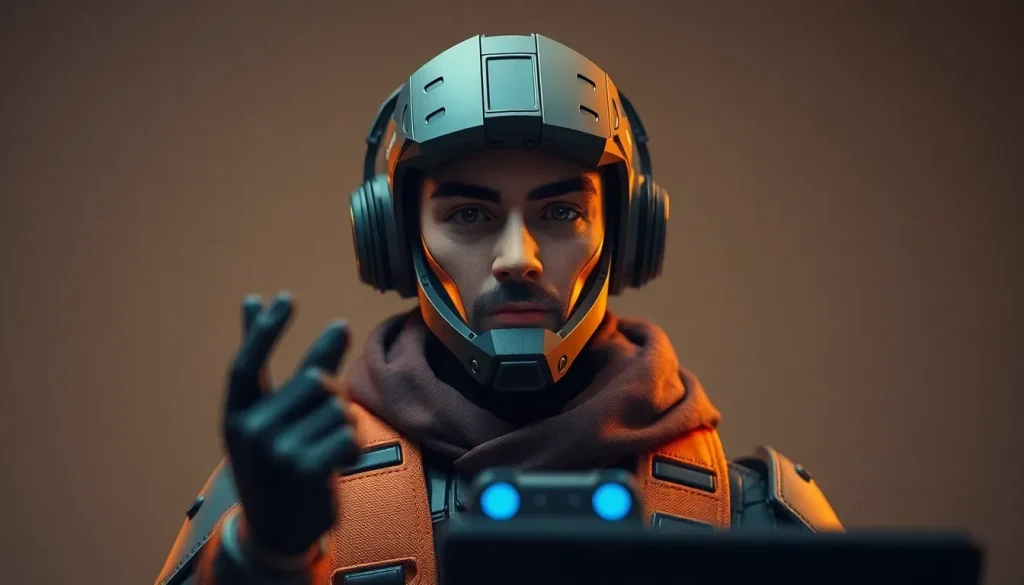Game developer argues against using AI for creative projects

As we approach the latter part of 2025, the conversation surrounding artificial intelligence (AI) continues to gain momentum across various sectors, particularly in the realm of game development. With the gaming industry historically leveraging AI to create immersive virtual environments, the recent surge in generative AI tools has led developers to question their potential role in streamlining production processes and reducing costs. However, the implications of AI in creative endeavors remain a contentious topic.
In a recent discussion with Ricard Pillosu, CEO and co-founder of Epictellers Entertainment, we explored the sentiments of developers regarding the integration of AI into creative processes. Pillosu emphasized a clear distinction: while he appreciates the potential of AI to assist in mundane tasks, he firmly believes it should not interfere with the imaginative aspects of game design.
Developers' perspectives on AI in game design
Pillosu articulated a common concern among creators: the essence of game development lies in the joy of creativity. He stated, “The problem with AI is that it should be doing the things that we don't want to do, and it seems that it wants to do the things that we want to do.” This sentiment reflects a broader anxiety within the industry regarding the encroachment of AI into areas traditionally reserved for human creativity.
He further explained that the thrill of inventing characters, worlds, and gameplay mechanics is what drives developers. “We want to do games. We want to invent,” he said, highlighting that the creative process should remain a human endeavor. For him, AI's role should ideally encompass tasks that distract from this creative flow, such as managing schedules or organizing data.
AI as a tool versus a replacement
Interestingly, the renowned video game designer Hideo Kojima presented a contrasting view on AI integration. In his recent remarks, he referred to AI as a "friend" that can enhance productivity and help creators stay ahead of the curve. However, he echoed Pillosu’s sentiments regarding the importance of delegating repetitive tasks to AI, allowing human developers to concentrate on their creative endeavors.
Actor Feodor Chin also contributed to this discourse, asserting that while AI can serve as a valuable tool, it should not replace the human touch in storytelling and character development. He remarked, “I think, like with any technology, there is a place for AI as a tool, but I don't think it should ever be a replacement for human beings.”
Can AI enhance creativity without obsolescence?
The core question remains: can the gaming industry harness the advancements in AI to bolster creativity without displacing jobs? Many industry insiders are skeptical about AI's ability to contribute meaningfully to creative tasks. They argue that true innovation and emotional storytelling stem from human experiences, something AI cannot replicate.
- Human emotional connection: The depth of storytelling in games often relies on human experiences and emotions that AI cannot authentically emulate.
- Unique artistic expression: Artists infuse their work with personal style and creativity, which AI-generated content lacks.
- Complex problem-solving: Game development often requires nuanced decision-making and adaptability that AI currently struggles to achieve.
- Community engagement: Many gamers appreciate the personal touch that comes from human developers, which fosters a stronger connection with the game.
- Innovation through collaboration: The most groundbreaking ideas often stem from collaborative human interactions rather than algorithmic processes.
The future of AI in game development
As the debate continues, it is essential for developers to critically assess the incorporation of AI in their workflows. While it is undeniable that AI can offer efficiency in certain areas, its deployment must be carefully managed to preserve the creativity that defines the gaming industry. The challenge lies in finding a balance where AI acts as a supportive tool rather than a creative force.
Ultimately, the potential for AI in game development is vast, but it requires a paradigm shift in how we view the relationship between technology and creativity. Developers must advocate for the thoughtful integration of AI, ensuring it complements rather than competes with human ingenuity.
For those interested in exploring further perspectives on this topic, the discussion around AI in game development can be enhanced by viewing this insightful video: Should Game Developers Use AI? My Honest Opinion.
As we move forward, the gaming industry must engage in continuous dialogue regarding the role of AI. By fostering an environment where technology serves to enhance the creative process, developers can ensure that the heart of game design remains vibrant and human-centric.




Leave a Reply